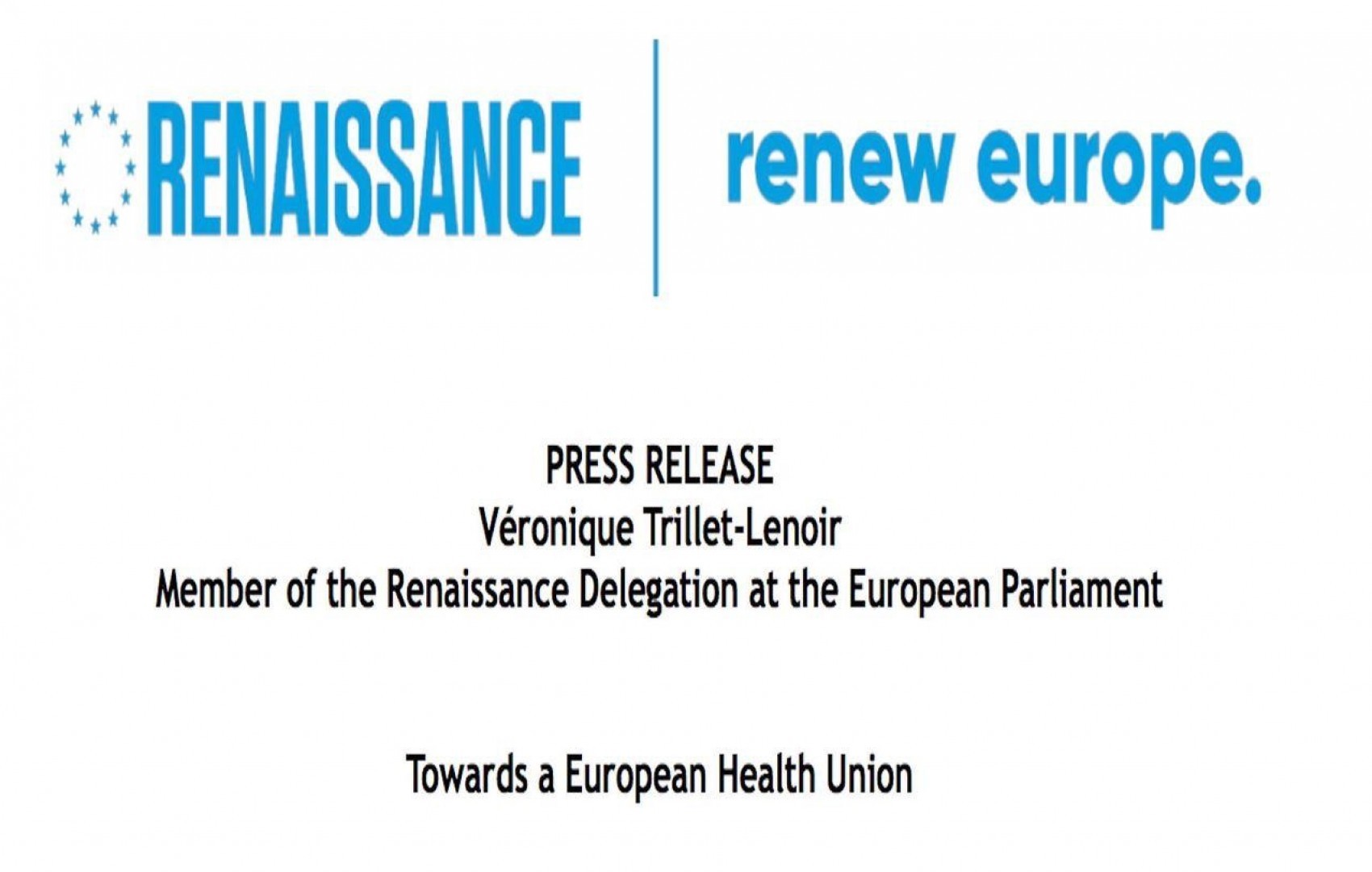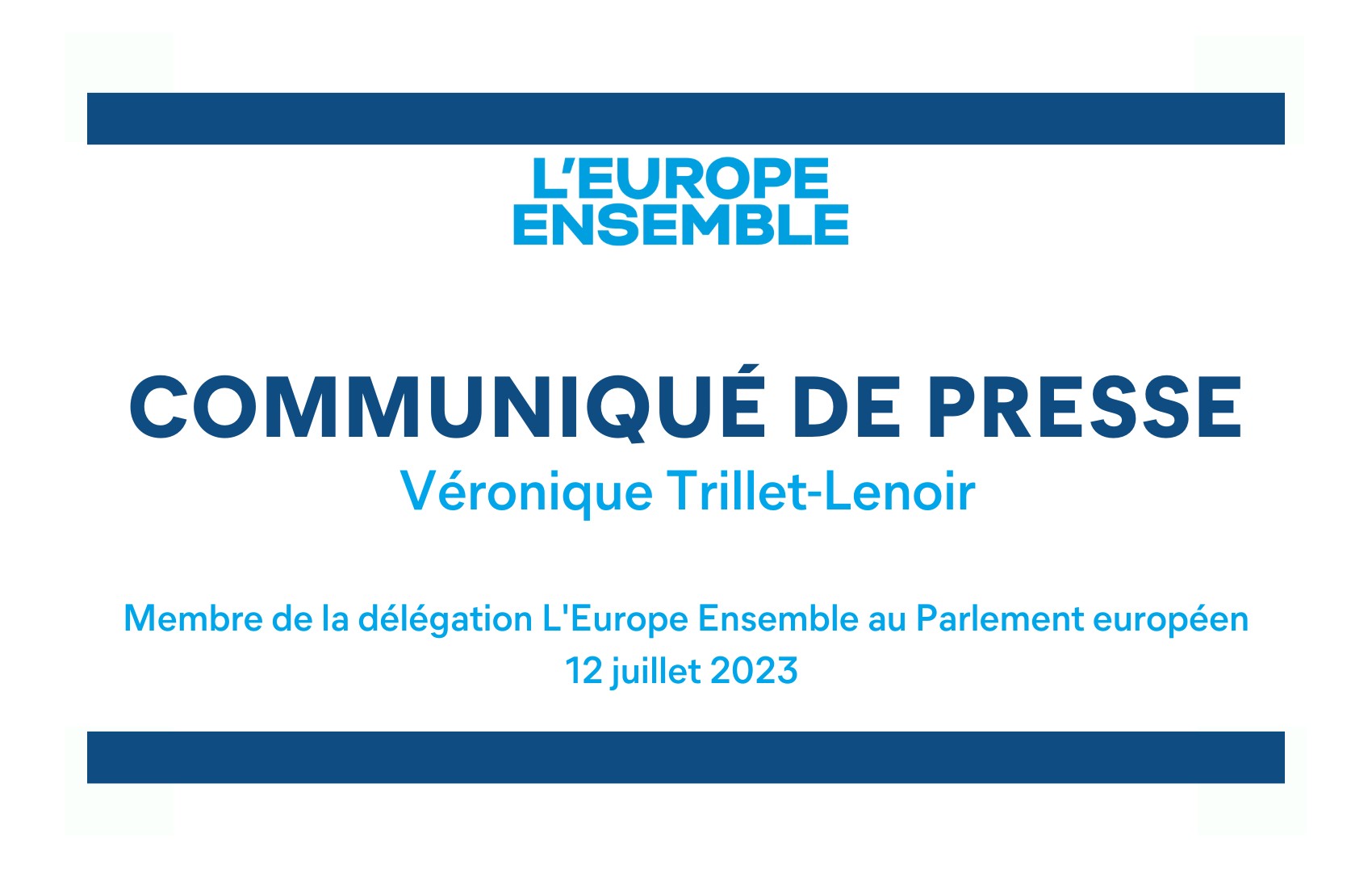Today, the European Commission published its pharmaceutical strategy. This is the first step towards a true European Medicines Market which Véronique Trillet-Lenoir, MEP of the Renaissance Delegation and Member of the Renew Europe group, has been calling for since the beginning of her mandate at the European Parliament.
“The COVID-19 epidemic has exacerbated a long-lasting fact: the European Union has become dependent on third countries for medicines and medical devices. For 10 years, several health professionals, parliamentarians and patient associations have emphasized the need to quickly restore European pharmaceutical independence. Unfortunately, it took a health crisis of this magnitude to raise awareness.
Progress is often born out of crises. With this pharmaceutical strategy, the European Commission is taking the measure of the challenge by proposing innovative actions in the short, medium and long term” welcomes the Vice-Coordinator Renew Europe to the environment, public health and food safety committee in Parliament European.
“The restoration of our strategic sovereignty will undoubtedly involve a partial repatriation of the production of medicines in Europe. It is certainly urgent to relocate part of the production of essential products and medicines of major therapeutic interest in Europe. But the pharmaceutical industries will obviously ask for counterparts to start this process. The launch of a structured dialogue between manufacturers and public authorities will therefore be essential to ensure the security and continuity of access to medicines in Europe. Through State aids or via the Important Project of Common European interest (IPCEIs), the European Union could encourage manufacturers to settle on European territory. In return for financial support to the industry, guarantees will obviously have to be required, in particular with respect to environmental (production and elimination of potentially polluting substances) and societal standards in force. R&D in the field of health products is a priority sector of European industrial strategy and must be supported and encouraged” insists Véronique Trillet-Lenoir.
“To ensure access to affordable and safe medicines for all, we must adopt strong, diverse, complementary measures. The announcement of the revision of the EU legislation on access to medicines by the end of 2022 is to be welcomed. In the report on medicines shortages adopted by the European Parliament, we called for a recast of these outdated and inadequate legislations to prevent and manage the tensions observed in the past years. This revision will be done in parallel with the strengthening of the powers and resources of the European Medicines Agency announced on November 11 in the legislative package "Building a European Health Union". It is crucial not to limit the prevention and management of medicines shortages to times of health crises. The unavailability of medicines can endanger the health and safety of Europeans during and outside of health crisis situations. In the European Parliament, we will make sure that this problem is approached and dealt with as a whole, at all levels of the production chain, without time or geographic restrictions, and with absolute priority on the needs of patients” underlines the MEP
“The long-awaited announcement of the review of European legislation on pediatric and orphan drugs by the first quarter of 2022 is excellent news. For many years, European associations have pointed out the weaknesses of these two pieces of legislation and the obstacles they pose in the research and development of innovative medicines, in particular in the field of cancer. Research and development of targeted genomic medicines within the framework of Horizon 2020 must indeed be one of the priorities of the European Union. The diversity of vaccine candidates against COVID-19 shows us the extent to which the urgency of innovation must encourage us to strengthen our research and development policies, "adds the MEP.
“It’s impossible to talk about access to medicines and innovation without addressing the issue of medicine prices. In its strategy, the Commission does not sidestep the issue but moves forward gradually. By proposing to support national authorities in enhanced cooperation between Member States on pricing policies, payment processes and the purchase of medicines, the Commission intends to transform the trial of the group purchasing initiative for vaccines against COVID-19, which initiates this process. We are stronger together. Solidarity and coordination must indeed take precedence. I support, for example, collective bargaining on drug prices with pharmaceutical industries such as the Beneluxa initiative and the Valletta declaration.
This cooperation would be a step in the right direction. I hope, however, that the Commission will soon propose the revision of Directive 89/105 / EEC on the transparency of measures governing the pricing of medicines. The regulation on clinical trials will also have to be fully implemented to finally allow the administrative simplification of European clinical trials. We will also have to convince Member States of the need for a common assessment of medicines by reaching an agreement on the regulation on the assessment of health technologies, the negotiations of which are blocked by the Council. This assessment should be enriched by "real life data" collected in the European Health Data Area. Intellectual property legislation will also need to be revised in order to speed up access to generics and biosimilars, especially in times of crisis. It is with all of these reforms that the establishment of a veritable virtuous circle of medicines will begin: effective controls, joint evaluation and total transparency of the procedures used to determine the prices and reimbursement of medicine in the Member States” recalls Véronique Trillet-Lenoir.
“To coordinate all of these instruments, you need a conductor. The Health emergency response authority (HERA), whose mandate will be clarified at the end of 2021, will play this key role. Potentially operational in 2023, this new agency would aim to strengthen our capacity to innovate and prepare for cross-border threats and emergencies. This European BARDA could allow us to build up strategic reserves of medical products. I fully support the establishment of this authority, but am still waiting to learn more about the budget necessary for its proper functioning, "said the Member.
“The Pharmaceutical Strategy is the perfect example of the 'health in all policies' approach that I defend at the Parliament. In its communication, the Commission indeed recalls that the implementation of this strategy will be done in full synergy with the European Green Deal, the Chemicals Strategy, the Zero Pollution Action Plan, the creation of a European Health Data Space, the Industrial Strategy and the Action Plan to implement the European Pillar of Social Rights. It is this global vision that we must promote within the framework of the Conference for the Future of Europe” concluded the MEP.



